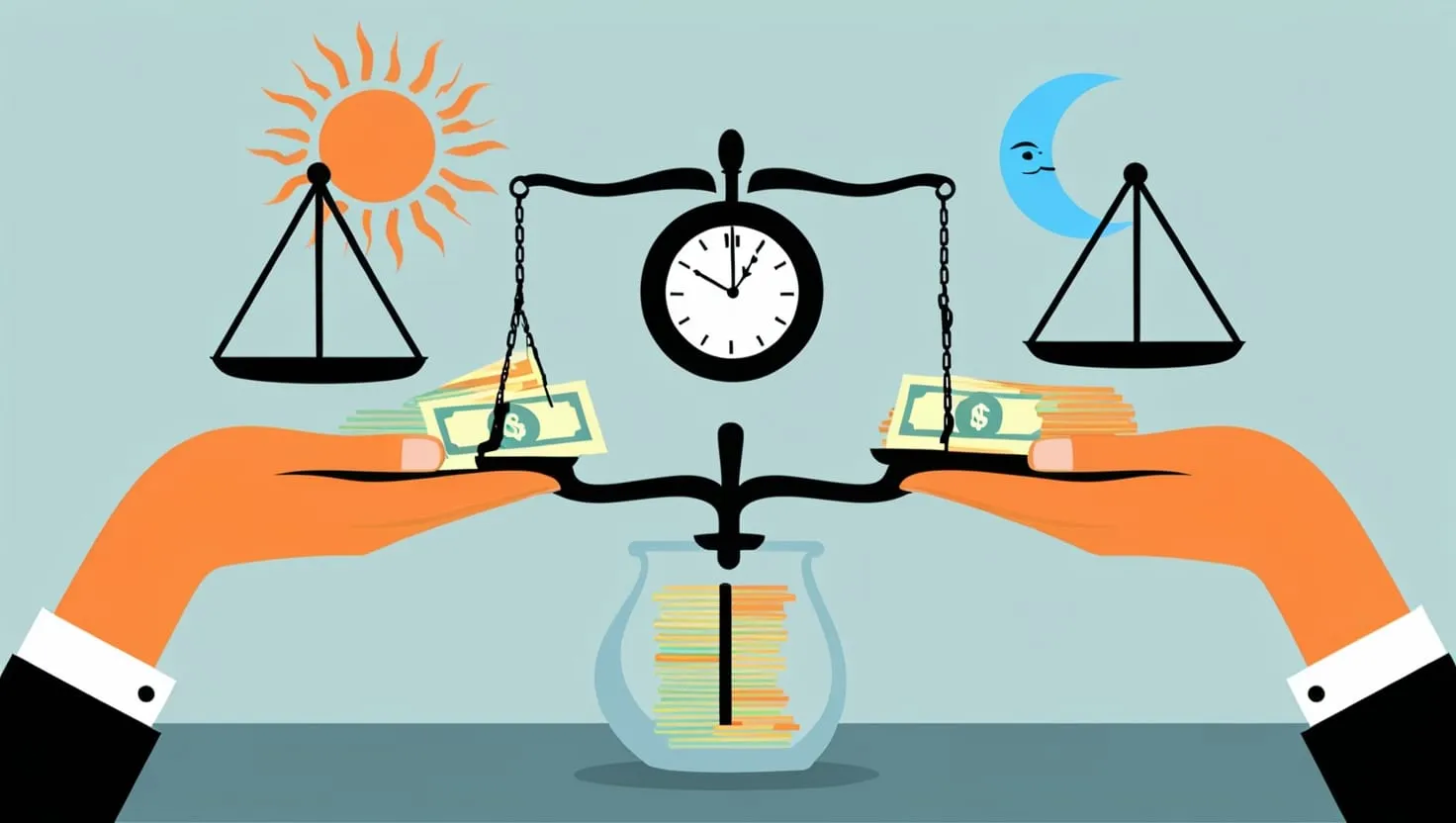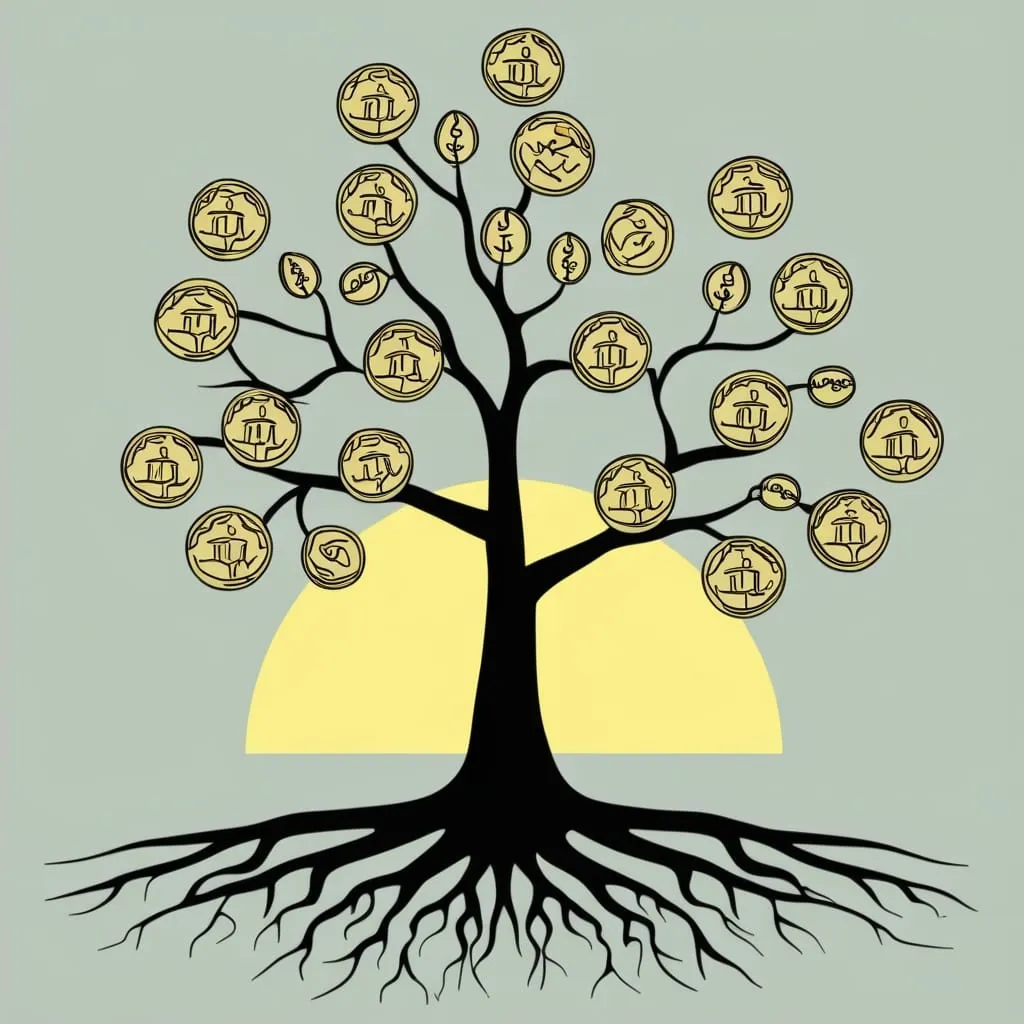As a financial advisor, I've often wondered why my clients make such different financial decisions depending on the time of day we meet. It wasn't until I delved into the fascinating world of chronobiology that I began to understand the significant impact our internal body clocks have on our financial choices.
The Influence of Chronotypes
Our bodies operate on an internal clock, known as our circadian rhythm, which dictates our periods of peak alertness and cognitive functioning. This rhythm is closely tied to our chronotype – whether we are morning-types (larks) or evening-types (owls). Research has shown that these chronotypes can significantly influence our decision-making processes.
For instance, morning-types tend to be more alert and cognitively sharp in the early hours of the day. They often exhibit better emotional regulation and a more positive mood, which can lead to more rational decision-making. In one study, morning-types were found to accept more unfair offers in the Ultimatum Game, a scenario where participants must decide whether to accept or reject an offer that may be perceived as unfair. This acceptance rate was correlated with their chronotype, indicating that morning-types are less swayed by negative emotions when making decisions[1].
On the other hand, evening-types tend to peak later in the day and may be more impulsive and risk-seeking during their optimal hours. This can lead to different financial behaviors, such as making riskier investment decisions or engaging in more impulsive spending late at night.
Circadian Mismatch and Decision-Making
The concept of circadian mismatch is crucial here. When individuals make decisions at times that are not optimal for their chronotype, it can lead to suboptimal choices. For example, if an early bird is forced to make financial decisions in the evening, they may rely more heavily on mental shortcuts or heuristics, rather than thorough analysis. This can result in riskier asset allocations and a greater tendency to be risk-averse when facing potential gains but risk-seeking when facing losses, a phenomenon known as the reflection effect[2].
Practical Insights for Financial Planning
Understanding these dynamics can revolutionize how we approach financial planning. Here are some practical insights:
- Schedule Budget Reviews Wisely: If you're a morning-type, it might be best to review your budget in the morning when you're most alert and rational. For evening-types, scheduling budget reviews during their peak hours could help in making more informed decisions.
- Investment Decisions: When making investment decisions, consider your chronotype. Morning-types might want to make these decisions early in the day when they are more cautious and less prone to impulsive choices. Evening-types, however, might benefit from making these decisions later in the day when they are more alert and potentially more open to calculated risks.
- Avoid Late-Night Spending: Evening-types should be cautious of late-night spending sprees. The impulsivity that comes with being awake later can lead to financial decisions that might not align with long-term goals.
The Role of Emotional State
Emotions play a significant role in financial decision-making, and our circadian rhythms can influence our emotional state. Morning-types tend to have a more positive affective balance, which can make them more resilient to negative emotions that might arise during financial decision-making. This emotional stability can lead to better financial outcomes as they are less likely to make decisions based on immediate emotional responses[1].
Leadership and Chronobiology
The impact of chronobiology is not limited to individual financial decisions; it also extends to leadership roles. Leaders who understand their own chronotypes and those of their team members can optimize decision-making processes within their organizations. For example, scheduling critical meetings and decision-making sessions at times that align with the peak cognitive hours of the team can lead to more effective and rational decisions[5].
High-Stakes Decision-Making
In high-stakes environments such as medical or surgical settings, understanding chronotypes can be crucial. Physicians and surgeons who are aware of their own and their team's chronotypes can ensure that critical decisions are made during optimal times, reducing the risk of errors and improving patient outcomes[3].
Consumer Behavior and Marketing
Chronobiology also has implications for consumer behavior and marketing. Understanding the chronotypes of your target audience can help in timing marketing campaigns and product launches. For instance, if a product is aimed at morning-types, advertising it during early morning hours might be more effective. Conversely, products targeting evening-types might see better results with late-afternoon or evening advertising.
Personalizing Financial Advice
As a financial advisor, personalizing advice based on a client's chronotype can be highly beneficial. By understanding when a client is most alert and rational, I can tailor my advice to their unique biological rhythms. This not only enhances the client-advisor relationship but also leads to more informed and sustainable financial decisions.
Conclusion
The intersection of chronobiology and financial decision-making is a fascinating and relatively unexplored area. By understanding how our internal body clocks influence our financial choices, we can optimize our decision-making processes. Whether you're a financial advisor, a leader, or simply someone looking to manage your finances better, recognizing the impact of your chronotype can lead to more rational, informed, and successful financial outcomes.
In the end, it's not just about making good financial decisions; it's about making them at the right time. By aligning our financial tasks with our peak cognitive times, we can ensure that our money management is not just efficient but also scientifically sound. So, the next time you're considering a major financial move, take a moment to think about your body clock – it might just be the key to making the best decision possible.






